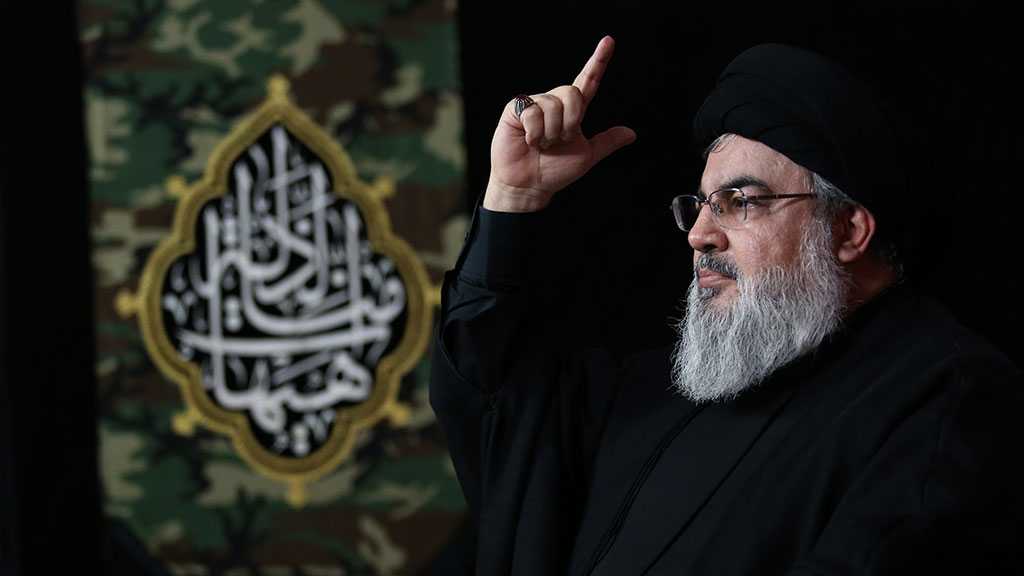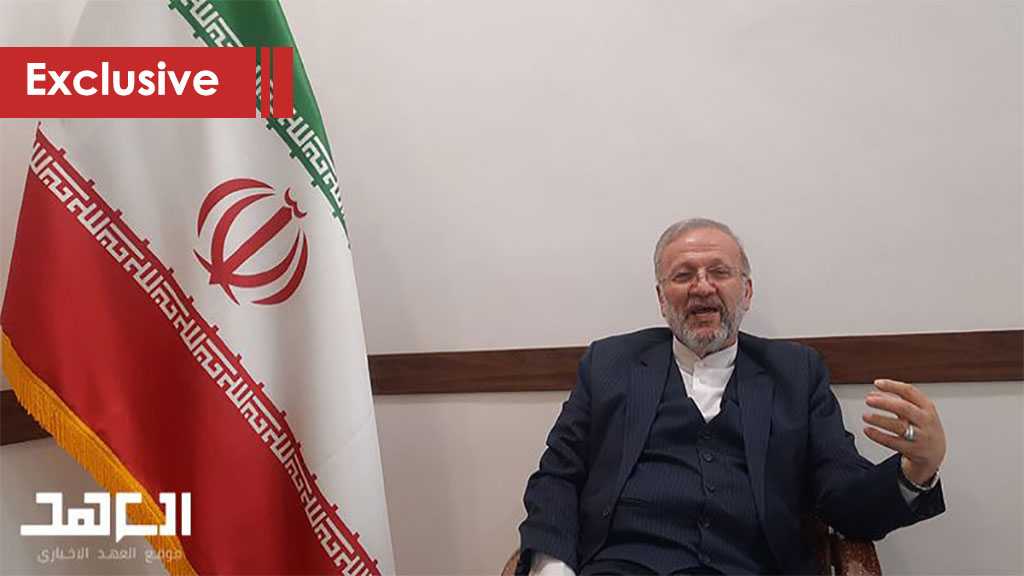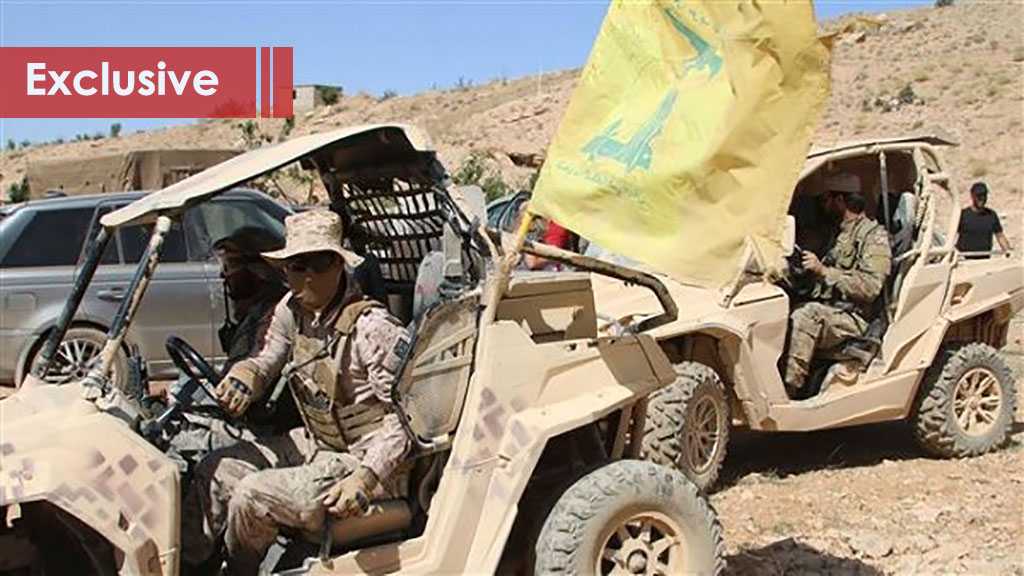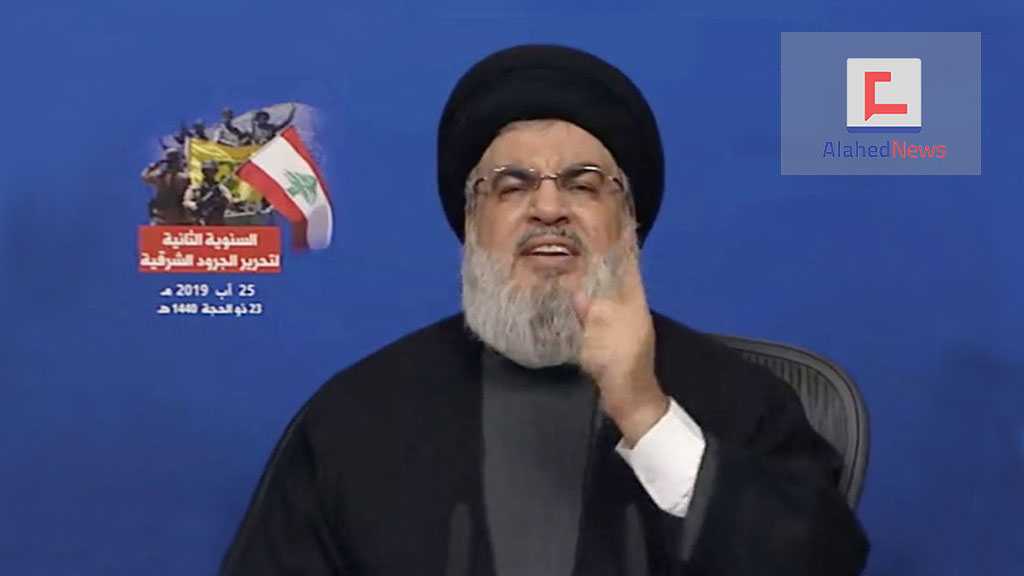
Hezbollah Liaison Chief Reveals Correspondence between Sayyed Nasrallah, Hezbollah Prisoners & Lebanon’s Top Brass
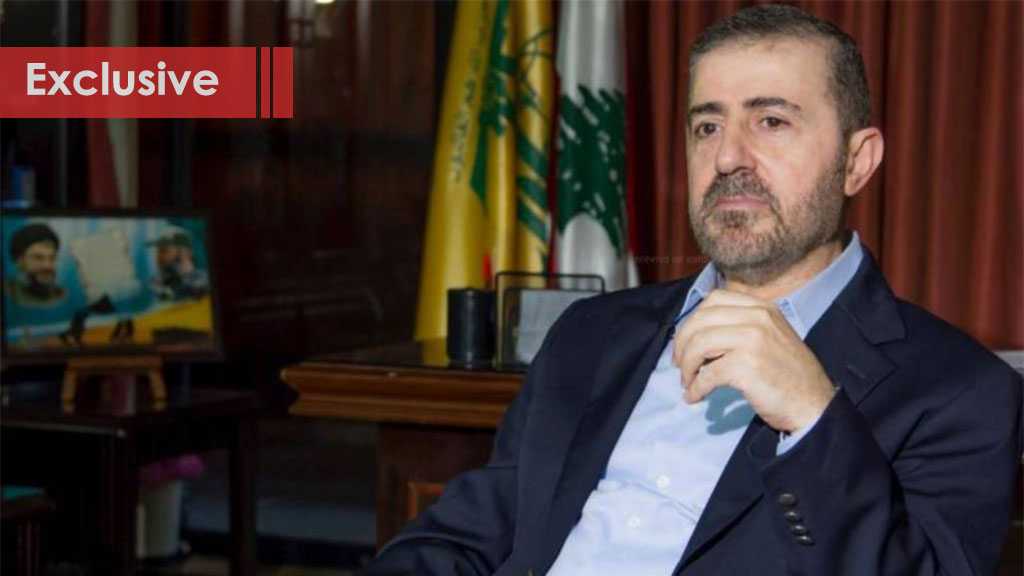
By Fatima Salameh
Beirut - Remembering the memory of the Second Liberation with its many scenes and dimensions is undoubtedly important especially by talking to figures that played prominent roles in that battle. This allows for the facts surrounding that event to be documented in the words of those who contributed to creating this victory. There is no doubt that a lot has been said between the present day and the 2017 liberation of the Joroud. There are also many secrets the resistance has not yet revealed. But the time for them to be disclosed will soon come.
Talking to the head of Hezbollah's Liaison and Coordination Unit, Hajj Wafiq Safa, gives the anniversary a richer dimension. He is said to be the well of secrets. Hajj has a lot of information about the liberation of the Joroud. Some have been revealed previously while other pieces of info will be disclosed later. Now, Hajj Safa is sitting down with Al-Ahed News Website to talk about a number of things. He took on different tasks, most notably the dossier of liberating the prisoners. He was tasked with coordinating between Hezbollah and the Lebanese army leadership. This cooperation resulted in a joint victory that led to the defeat the Takfiri gangs and eliminated the threat they posed to Lebanon.
In an interview with Al-Ahed News Website, Safa discloses text and audio messages that have been received by Hezbollah Secretary General Sayyed Hassan Nasrallah from the prisoners of the resistance captured by Al-Nusra Front and the Daesh terrorist organization. He recounts how His Eminence remained in contact until the prisoners were released. The head of the Liaison and Coordination Unit also discloses reciprocal messages between Sayyed Nasrallah and Army Commander General Joseph Aoun in which the latter expressed his desire to take over the military operation against the Daesh terror organization. Safa conveyed the request to Sayyed who enthusiastically welcomed the idea.
* From the prisoners of the resistance to Sayyed: "We Know that you won’t forget us."
"We are a people who do not leave our prisoners in prison." This is a famous phrase coined by the Hezbollah Secretary General and was not uttered in vain. His Eminence meant every word. And history attests to that. The secrets carried by the head of the Liaison and Coordination Unit on the matter confirms that Hezbollah resorted to every means possible to free its captives. Safa has a long history with this particular dossier, assigned to him by Sayyed Nasrallah. During that time he was able to carry out many "difficult" tasks.
Freeing the prisoners from the hands of the Takfiri gangs is one of those tasks that Safa worked on tirelessly day and night. The prisoners carry a weight on Hezbollah’s conscience. They have a special place in the conscience of Sayyed Nasrallah, Safa explained to Al-Ahed. The Head of the Liaison and Coordination Unit conveys His Eminence’s "special" interest in this dossier. Sayyed Nasrallah lends special regard to the humanitarian subject. He feels with the families of the martyrs, the wounded and those held captive. He might even feel a greater pain than theirs. Hence, his resolve to secure the freedom of the prisoners, whether they be captives of the Zionist enemy or the Takfiris. According to Safa, this is a priority for the Secretary General of Hezbollah with its humanitarian, religious and ideological dimensions. This explains the depth of his famous phrase “We are a people who do not leave our prisoners in prisons”.
Safa underscores the point that the subject of the prisoners was one of the top priorities preoccupying Sayyed. Thus, pushing him to follow up on every detail of this dossier throughout two key operations: If You Return, We Return and The Dawn of the Joroud.
We had prisoners captured by Nusra and Daesh. From the start, the first conditions were to free the prisoners. Safa quotes his Eminence as saying repeatedly: "Any agreement that does not include the prisoners dossier is not called an agreement and will not be accepted." His Eminence showed great adherence to the prisoners’ dossier and incorporated it into any final settlement.
Here, Safa discloses written and audio message that Sayyed Nasrallah received from the prisoners of the resistance captured by Daesh or Nusra, through a mediator working on this issue. This mediator was asked to bring proof of life. Among the messages delivered to Sayyed Nasrallah from the prisoners of the resistance was a letter.
"We know that you won’t forget us. Our trust in God and in you is great," the letter read.
The messages had a great impact on His Eminence, Safa recalls.
"He was very happy for every message he received, and in return he considered this a great responsibility," Safa says in describing Sayyed’s state at the time.
Moreover, Safa recounts how Sayyed Nasrallah maintained contact throughout the handover of the prisoners to ensure that it was successfully accomplished both in practical terms and in reaching a final settlement. From time to time, he would call to follow up with the head of the Liaison and Coordination Unit. He would ask the latter a series of questions.
"Did you receive them?", "How are they?". Sayyed would ask him to convey a message to the prisoners: “Give them my regards and tell them I will see them later."
* Messages exchanged between Sayyed and the Commander of the Army
It is no secret that the coordination between Hezbollah and the Lebanese army from the start gave the battle a distinct national dimension, which contributed to its success in record time. From the beginning, the leadership of the resistance was keen to coordinate and cooperate with the military establishment for the benefit of the nation. In this regard, Safa recalls some of the times when he coordinated with the army. In the first leg, the resistance leadership sent him to Yarzeh to meet with the army commander and inform him of Hezbollah's and the resistance’s decision to eliminate the Nusra Front terrorist organization once and for all.
They outlined two key reasons:
The internal threat emanating from Nusra-held areas
The entire eastern border extending from Jabal al-Sheikh to Arsal has been cleared, except for this outpost which must be liberated.
It is noteworthy that these two things prompted the leadership of the resistance to uproot Nusra. Safa says that at the time the commander of the army was informed of the coordination and that there are common geographical areas overlapping with the Lebanese army. Then the operation started, Safa adds. It ended within days by declaring victory over Nusra.
After the resistance achieved this victory, the decision was made to eliminate the Islamic State terrorist organization in that region. Safa then informs the army commander about Hezbollah’s and the resistance’s decision to get rid of the Daesh terror organization and the threat it poses to national security. The considerations that led the leadership to fight Daesh were the same as those that led to the fight against the Nusra Front.
Safa reveals the army commander’s reply to Hezbollah’s decision: "I am, as an army commander, willing to take over the process of eliminating Daesh. Convey my regards and request to Sayyed Nasrallah."
Safa conveyed the message to Hezbollah's Secretary General and the army commander’s request. Sayyed welcomed the idea enthusiastically and sent a new message to Yarze: "Go ahead. Hezbollah will not interfere on Lebanese territory, and on Syrian territory we will be partners with the Syrians."
Once again, Safa conveyed the message to General Joseph Aoun, who was delighted with the Lebanese army’s task of eliminating Daesh. The army began its preparations for the battle. Here, the Americans interfered, as is well known now, and put pressure on the army to obstruct its task. The Americans threatened to reduce their assistance. This is what Sayyed Nasrallah spoke of as he praised the wise decision of President Michel Aoun and Foreign Minister Gebran Bassil, who confronted the Americans. Both Lebanese officials were of the opinion that what the Lebanese army was doing was an internal matter and a decision taken purely by the armed forces.
In conclusion, the Lebanese army ignored all the pressure. Instead it took the initiative in attacking Daesh. Operation, ‘The Dawn of the Joroud’, which wrapped up relatively quickly thanks to the concerted efforts by the Lebanese army that fought from the Lebanese side and Hezbollah and the Syrian army that waged the battle from the Syrian side.
In the end, the sovereign Lebanese decision championed by President Aoun prevailed. Safa cannot forget the scene that dominated Lebanese television screens when the President of the Republic went to the operations room of the army command in Yarzeh and inspected the progress of the operation and extended his greetings to the soldiers and the officers. The President’s move boosted their morale, which translated into victory. And Daesh was expelled from Lebanese territory. The same scene was repeated when Hezbollah Secretary General Sayyed Hassan Nasrallah met with personnel at the resistance operations room during the ‘If You Return, We Will Return Operation’ against the Nusra Front. The joint victory culminated in Sayyed Nasrallah congratulating President Aoun on the one hand and the Lebanese Army on the other.
Hence, when those efforts were combined, victory was achieved for Lebanon and all its segments of society. And the project of establishing an emirate was demolished thanks to the foresight of the wise resistance leadership and the price it paid (the martyrs and wounded). The sovereign Lebanese decision championed by the President of the Republic and some honorable people also played a key role. There is no doubt that the coming days will reveal more about this strategic liberation.
Comments
